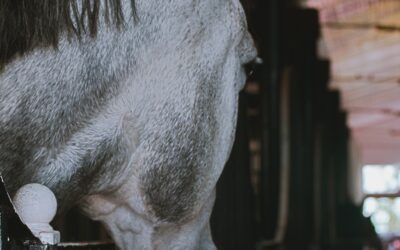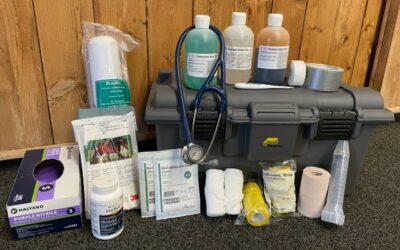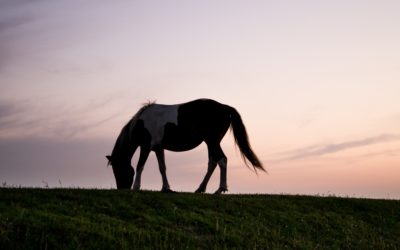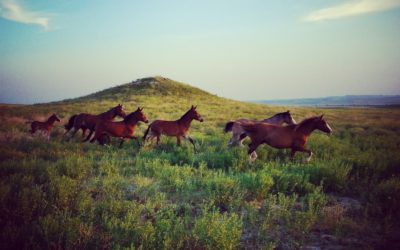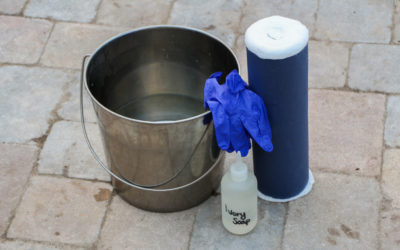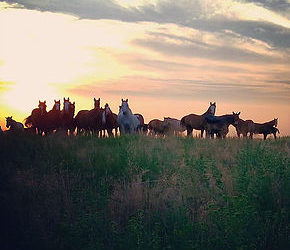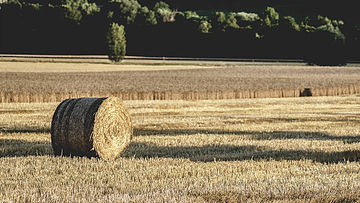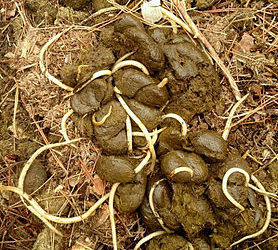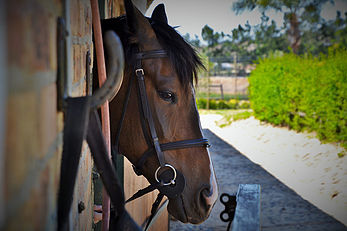We can all agree that the health of our horses is of the utmost importance to us. They are vulnerable to a number of transmissible diseases that can spread easily between horses. These diseases can cause a variety of symptoms, including respiratory signs, diarrhea, or...
Equine
Colic – What does the vet mean?
Colic is a very broad term, describing signs of abdominal pain in the horse. If you are somewhat unsure of what colic truly means, you are certainly not alone! Colic has a number of different causes, and each cause of colic comes with varying treatment options, and...
Your Horse’s First Aid Kit
Do you have a first aid kit prepared for your horses? While a first aid kit is not meant to substitute veterinary care, it can be incredibly helpful in emergencies to help stabilize your horse until the vet can attend. Your kit will include essential equipment, as...
Why your veterinarian should be the one vaccinating your horses
When it comes to the safety and health of your four-legged companions, vaccination is an area where we don’t want to make compromises! Many of the diseases we routinely vaccinate for are very serious, if not fatal for your horse. Having a veterinarian vaccinate your...
Vitamin E and Selenium for Your Horse
Vitamin E and Selenium are involved in many systems within the body. Selenium is a mineral which is important for wound healing, stress tolerance, fetal development, healthy hair coat, and detoxification of drugs and other chemicals. In addition, selenium is critical...
Our Gallant Geldings and the Importance of Sheath Cleaning
If you have geldings and get dental work done on them regularly you will be used to this familiar question from your veterinarian: “Would you like his sheath cleaned today?”. While many owners have geldings that are patient enough to have their sheaths cleaned without...
Equine Euthanasia and What Comes Next
Making the decision to euthanize an equine companion is never easy. Even if the time may be right for our horse, it may not feel like the right time for us to be saying goodbye to our friend. The end of a beloved horse's life can be a very difficult time. Not only are...
Hay Analysis
Hay is a crucial part of an equine diet in the Midwest, and its nutrition content can play a big role in what grain and supplements your horse may or may not need. When creating a nutrition plan for your horse(s), we recommend a hay analysis. A hay analysis is easy to...
Strategic Deworming of Horses
The way it used to be: Traditionally, horses were dewormed every couple months using a rotation of different dewormers. Daily feed-through dewormers were also utilized. However, newer research has shown that large strongyles (which used to be prevalent, and the target...
What is a Coggins Anyway?
What is a Coggins Test? A coggins is a test for equine infectious anemia (EIA) which is a viral disease. Facts about EIA EIA is spread by blood-feeding insects such as horseflies, stable flies , and deer flies. It can also be transferred in utero, or via equipment or...

